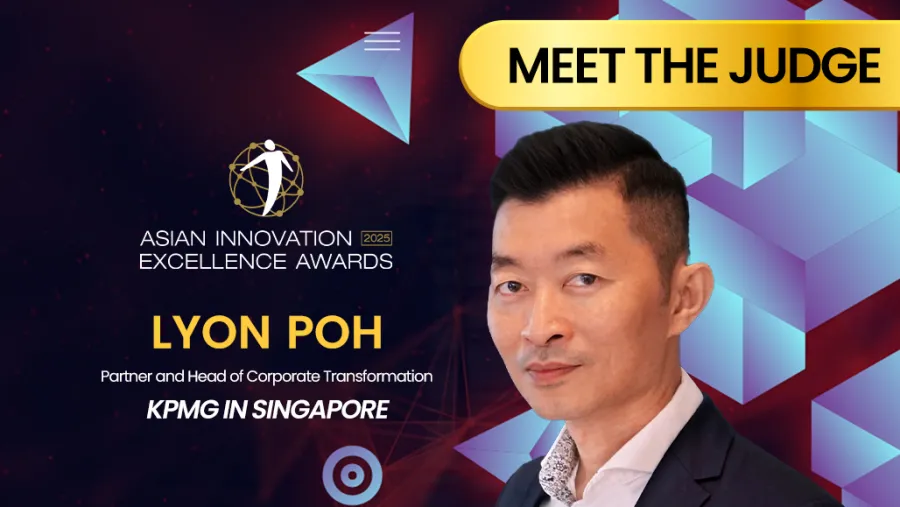
Innovation is the engine that powers progress – KPMG in Singapore’s Lyon Poh
He highlighted how organisations can create new opportunities, optimise operations, and build a future that is sustainable and impactful.
Innovation is now the driving force of resilience and growth in a complex global economy. In Asia, rapid digital transformation, backed by cultural strengths and progressive policies, is reshaping industries and redefining organisations.
Offering professional insights is Lyon Poh, Partner and the Head of Corporate Transformation at KPMG in Singapore. He leads the firm’s advisory practice in delivering comprehensive digital business, process transformation, cyber security, and data and analytics consulting services. With over 23 years of professional experience, he has worked extensively with government agencies and multinational corporations in Singapore.
Prior to his current role, Poh served as Chief Information Officer for KPMG in Singapore, where he was responsible for directing and managing the firm’s IT strategy and initiatives.
As a judge at the Asian Innovation Excellence Awards 2025, Poh shared his perspectives on people-centred transformation, Asia’s innovation landscape, and the future of sustainable digital change.
How has your extensive experience across government agencies and multinational companies moulded your approach to innovation and corporate transformation?
Transformation is fundamentally about people. Before technology can drive change, it must be tailored to empower individuals, enhance their efficacy, and unlock their creative potential. My experience across diverse sectors has shown me that successful transformation begins with understanding the unique needs of people—whether employees, customers, or stakeholders—and designing solutions that resonate with them.
Technology, when customised effectively, becomes a powerful enabler. It can personalise experiences, streamline processes, and amplify human creativity. However, it is leadership that sets the tone for this transformation. Leaders must foster a culture of trust, collaboration, and experimentation, creating an environment where people feel empowered to innovate and take calculated risks.
KPMG’s 2024 Global Transformation Survey highlights that whilst 88% of global executives are running multiple transformation programmes, only one-third rate their technology foundation as highly ready. This underscores the importance of aligning people, processes, and technology to achieve meaningful outcomes. Transformation is not just about adopting new tools—it is about unlocking the full potential of people to drive sustainable change.
From your vantage point, how is innovation in Asia different compared to other regions?
Asia’s innovation landscape is shaped by its cultural nuances, which foster collaborative, education-driven, and resilient ecosystems. These cultural drivers, combined with proactive government policies and regional diversity, create a unique environment for technology and innovation to flourish.
A strong emphasis on education across many Asian countries has cultivated highly skilled workforces, driving technological advancement and innovation. Additionally, the collectivist nature of many cultures in the region prioritises teamwork and community achievement, enabling large-scale coordinated research, infrastructure projects, and innovation platforms.
Diversity is another key strength. In hubs like Singapore, the convergence of varied nationalities and disciplines encourages cross-cultural synergy, delivering creative problem-solving and innovative products. This diversity is further supported by government initiatives such as Singapore’s strategic tech programmes, which promote R&D, entrepreneurship, and intellectual property protection.
However, Asia’s approach to innovation is not without its challenges. Hierarchical workplace structures and cultural stigma towards failure can sometimes stifle creative dissent and bold experimentation. Yet, these barriers are gradually being addressed as governments and organisations recognise the importance of fostering a culture of openness and risk-taking.
Asia’s innovation story is one of balance—blending its rich cultural heritage and pragmatic approach with bold investments in frontier technologies. This unique interplay positions the region not just as a participant in global innovation but as a leader shaping its future.
What common pitfalls do organisations encounter when pursuing digital innovation and what can they do to prevent these moving forward?
Organisations often face challenges in scaling innovation beyond initial pilots. Whilst early-stage experimentation is valuable, it can sometimes lead to fragmented efforts if not aligned with a broader strategic vision. This is particularly evident when innovation initiatives are siloed, resulting in limited impact and missed opportunities for cross-functional collaboration.
Other challenges include setting realistic ROI expectations, navigating change management complexities, and addressing data governance and compliance requirements. These issues are not necessarily failures but rather indicators of the growing pains that come with digital transformation.
To overcome these challenges, organisations should adopt an ecosystem approach. By fostering open innovation and building collaborative networks with partners, startups, and even competitors, businesses can accelerate the development and scaling of solutions. Establishing a cross-functional steering committee, led by an executive sponsor, can also ensure alignment between business and technology units, whilst promoting accountability and shared ownership of outcomes.
Ultimately, the key to success lies in creating a cohesive strategy that integrates people, processes, and technology. By leveraging the collective strengths of an ecosystem, organisations can drive innovation that is scalable, sustainable, and aligned with long-term business objectives.
How well do you think regulations in Asia are adapting to the pace of innovation, and what factors are driving this trend?
Asia’s regulatory landscape is evolving rapidly to keep pace with the region’s fast-moving innovation agenda. Recognising the need for agility, many Asian governments are adopting “light-touch” regulatory frameworks that balance oversight with flexibility. This approach enables innovation to flourish whilst maintaining essential safeguards.
For example, ASEAN’s Guide on AI Governance and Ethics provides a regional framework that promotes transparency, fairness, and accountability without stifling innovation. Similarly, Singapore’s Model AI Governance Framework prioritises explainability, safety, and fairness, ensuring that regulations evolve alongside technological advancements.
This light-touch approach reflects an understanding that innovation in Asia is progressing at an unprecedented speed. Governments are recognising that rigid regulations could hinder progress, and instead, they are fostering an environment that encourages experimentation and rapid iteration. By doing so, they are enabling businesses to remain agile and competitive in a dynamic global landscape.
Asia’s regulatory evolution underscores the region’s commitment to responsible innovation. By balancing flexibility with trust, the region is positioning itself as a leader in shaping the future of technology and innovation.
Why is innovation the key to thriving in the present era?
Innovation is no longer a strategic advantage—it is a necessity for survival and progress. In today’s world, defined by geopolitical uncertainty, shifting consumer expectations, and exponential technological change, organisations must continuously reinvent themselves to remain competitive and relevant.
Beyond differentiation, innovation is critical for finding smarter, faster, and more efficient ways to operate. In an era where optimisation is paramount, businesses are leveraging innovation to streamline processes, reduce costs, and enhance productivity. Whether it’s through automation, data-driven decision-making, or advanced technologies like AI, innovation enables organisations to adapt quickly to disruption and seize new opportunities.
KPMG’s Global Tech Report 2024 reveals that 70% of tech executives report strong ROI from data-driven innovation, particularly in areas like AI and ESG. This demonstrates that targeted investments in innovation not only drive financial returns but also help organisations navigate volatility and protect transformation progress.
Innovation is also a societal imperative. Without equitable access to AI infrastructure, data, and skills, many regions risk being left behind in the Fourth Industrial Revolution. By fostering inclusive and sustainable innovation, organisations can contribute to a more resilient global economy.
Ultimately, innovation is the engine that powers progress. It enables organisations to unlock new value streams, optimise operations, and build a future that is not only competitive but also sustainable and impactful.
As a judge for this year’s Asian Innovation Excellence Awards, how do you think this awards programme contributes to nurturing a culture of innovation in Asia?
Asia is emerging as a global leader in tech-driven solutions, from AI-enabled logistics to modular solar microgrids. These innovations are the result of integrated ecosystems that bring together enterprise, policy, finance, and community.
The Asian Innovation Excellence Awards spotlight bold ideas and scalable solutions that inspire cross-sector collaboration and amplify the visibility of Asia’s innovation ecosystem.
Awards like this play a critical role in validating early-stage ventures, attracting catalytic capital, and fostering a culture of experimentation. They do not just celebrate success—they fuel the momentum needed to drive Asia’s innovation agenda forward.
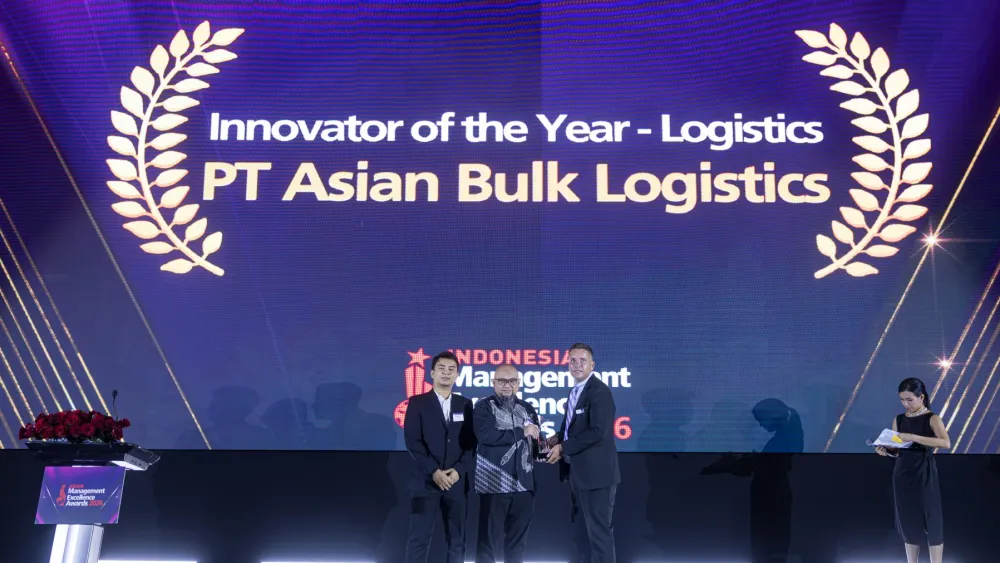
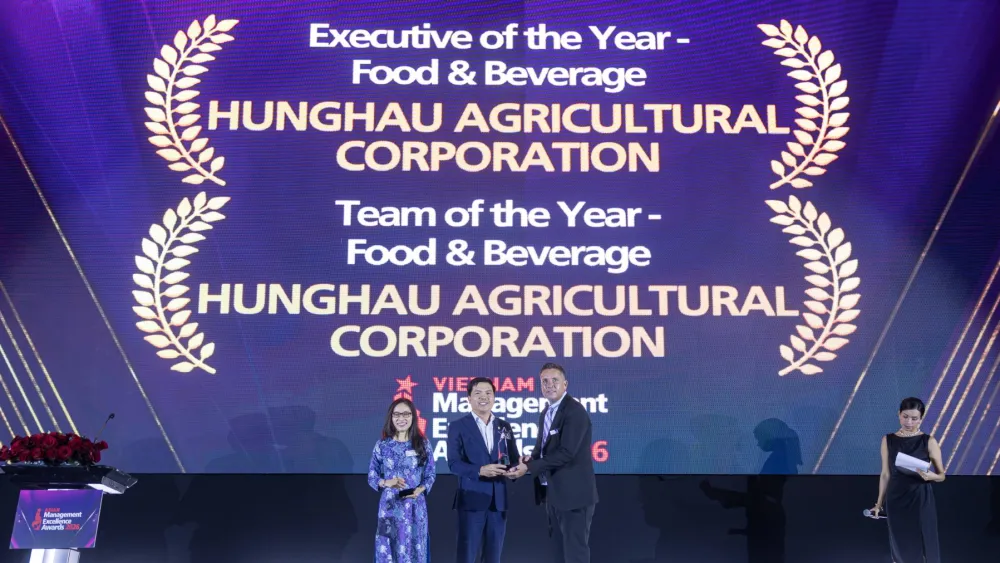








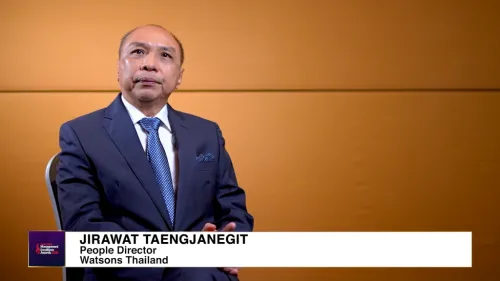


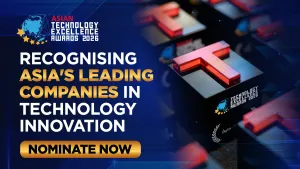





 Advertise
Advertise










